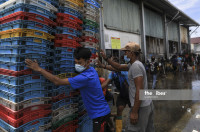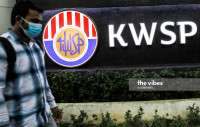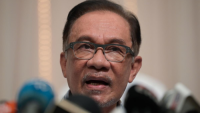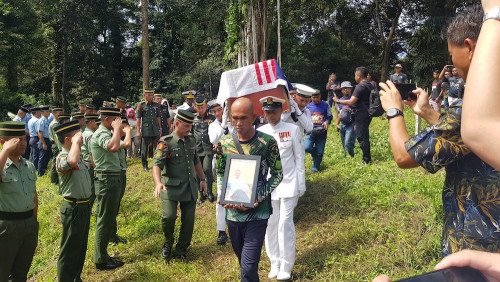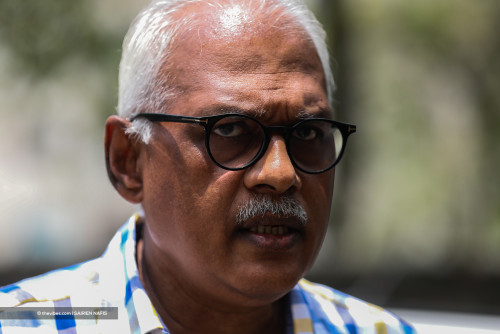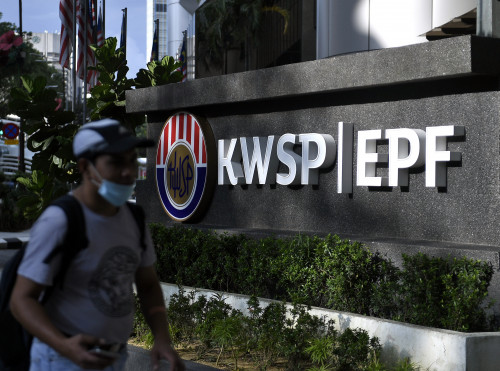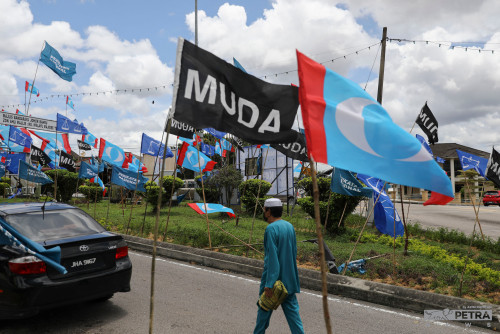Weaknesses and vulnerabilities
Long before the pandemic came, our economy was already struggling to overcome severe difficulties.
Covid-19 exposed the vulnerabilities: the weaknesses of our social structures, the distorted political priorities, the imprudent economic policies, and the deplorable living conditions of the lower-income groups and marginalised.
Social cohesion and solidarity are crucial to the country’s recovery in times of a pandemic. Countries with a high level of social cohesion, solidarity and greater equality have managed to deal with the twin crisis of Covid-19 and economic recession better than those with less inclusiveness and higher polarisation. An example of the first is New Zealand, while the US is an example of the second.
Many countries use their economic stimulus packages to restore lost jobs, save businesses, and more importantly, redress deep-seated racial inequalities and improve social justice.
Unfortunately, this RM325 billion Budget, the largest in the country’s history, is not used entirely to assist those hit hardest by the pandemic and recession. Instead, the allocations are race-based to fish for votes. Race-based allocations will reinforce social fractionalisation, divisiveness and inequality. Come post-Covid-19, those already behind will be left further behind.
Malaysians are disappointed with the disproportionate race-based allocations:
RM11.1 billion to support Bumiputera development;
RM6.5 billion to Bumiputera education institutions;
RM4.6 billion to empower Bumiputera entrepreneurs; and,
RM500 million from various schemes designated for Bumiputera entrepreneurs to increase their involvement in the key sectors.
The disparity is clear when compared with the allocations to the other communities:
RM177 million for the Chinese community for the development of new villages;
RM100 million for the Malaysian Indian Transformation Unit (MiTRA) to elevate the socio-economic status of the Indian community;
RM20 million for Skim Pembangunan Usahawan Masyarakat India; and,
RM5 Million for the entrepreneurship development for other minorities.
New approach is needed
To foster economic recovery, this Budget should prioritise a more inclusive and multi-acial socio-economic development strategy, and target all ethnic communities equitably and fairly in the overall programmes and projects to be implemented.
A new approach is needed because the basis upon which the New Economic Policy (NEP) was implemented, which was an expanding economy, no longer exists.
The 2nd Malaysia Plan said that “the New Economic Policy is based upon a rapidly expanding economy which offers increasing opportunities for all Malaysians as well as additional resources for development. Thus, in the implementation of this Policy, the Government will ensure that no particular group will experience any loss or feel any sense of deprivation”.
Yang Berhormat Langkawi, as the fourth prime minister tabling the Second Outline Perspective Plan (OPP2) on June 17, 1991, said the same thing: “We also resolve to undertake this socio-economic engineering exercise within the context of an expanding economy so that in the process of distributing the benefits of development, no ethnic group experiences a sense of absolute deprivation.”
Today, the economy is a shrinking pie, but the Budget allocations continue to be distributed disproportionately in favour of one community. Those affected by the Covid-19 crisis feel a deep sense of deprivation because the badly needed assistance has not been provided, and what has been provided will stop after three months. In the meantime, those favoured will enjoy substantial benefits such as the following:
RM400 million to write off the interest of Felda settlers’ debts;
RM750 million to Pelaburan Hartanah Bhd to optimise the value of Malay reserve land in strategic areas, to increase the value of Bumiputera holdings in real estate;
RM300 million to encourage Bumiputera micro and small businesses to move up to a higher category;
RM300 million to assist SMEs that supply the government or government-linked companies (which are Bumiputera companies in order to be awarded such contracts);
Those who have lost their jobs or income, or are badly affected by the Covid-19 pandemic, will be left on their own;
With the automatic loan moratorium having ceased at the end of September, borrowers have to depend on banks for extension of the moratorium;
The targeted wage subsidy shall cease after three months, and the 70,000 employers and 900,000 employees will have no assistance after that;
RM50 million is allocated for the training and placement of 8,000 airline employees, but there is nothing for the those in industries also badly affected, such as tourism, hotel, hospitality and retail; and,
In the first phase of the movement control order (MCO) from March 18 to June 9, 9,675 SMEs closed down, while 22,794 businesses closed from June to September during the recovery MCO. There will be more businesses closing down in the coming months.
After more than 50 years of relentless implementation, the twin objectives of the race-preferential policy have not been achieved. Instead, NEP has resulted in deepening inequalities, particularly intra-ethnic inequalities.
With the race-based allocations in this Budget, post-Covid-19 will see larger inequalities and greater misery. The results of the first prong of the NEP to eradicate poverty are not as impressive as previously claimed. By this Budget’s acknowledgment that the poverty line income is RM2,208 and not RM980, the boast that poverty has been reduced from 49.3% in 1970 to 0.4% in 2016 is not true.
The Household Income, Expenditure, Basic Amenities Survey 2019 reports that at RM2,208, the incidence of absolute poverty was 7.6%, or 525,743 households, in 2016, and 5.6%, or 405,441 households, in 2019, not 0.4%, or 25,000 households, as claimed previously. At RM2,208, the survey reports that the value of relative poverty in 2016 was 15.9 and 16.9 in 2019.
The use of a very low and highly unrealistic poverty line obscured the reality that millions struggle to get by with tenuous access to food, shelter, education and healthcare, with limited ability to exercise civil and political rights. As a result, there has been a significant under-investment in poverty reduction, a widespread misunderstanding of who is poor, neglect of the poor in many official plans and programmes, and an inadequate social safety net.
Despite acknowledging that there are 405,441 poor households and not 25,000, the 2021 development budget for the Women, Family and Community Development Ministry has been reduced from RM213,703,100 in 2020 to RM125,639,900.
There is an urgent need for adequate funding to carry out far-reaching reforms to eliminate poverty by adopting a comprehensive social protection for all citizens and providing essential support to non-citizens. To achieve this, social cohesion and national unity must be strengthened first.
Social cohesion will put a stop to lies that lead to racial prejudice and discrimination. The Household Income, Expenditure, Basic Amenities Survey 2019 exposes the lie that all Chinese are rich. The Household Gross Income by Ethnicity shows there are Malays, Chinese, Indians, and Sabah and Sarawak natives who are poor. Why are the non-Malay poor not given the same opportunities as those who are Malay?
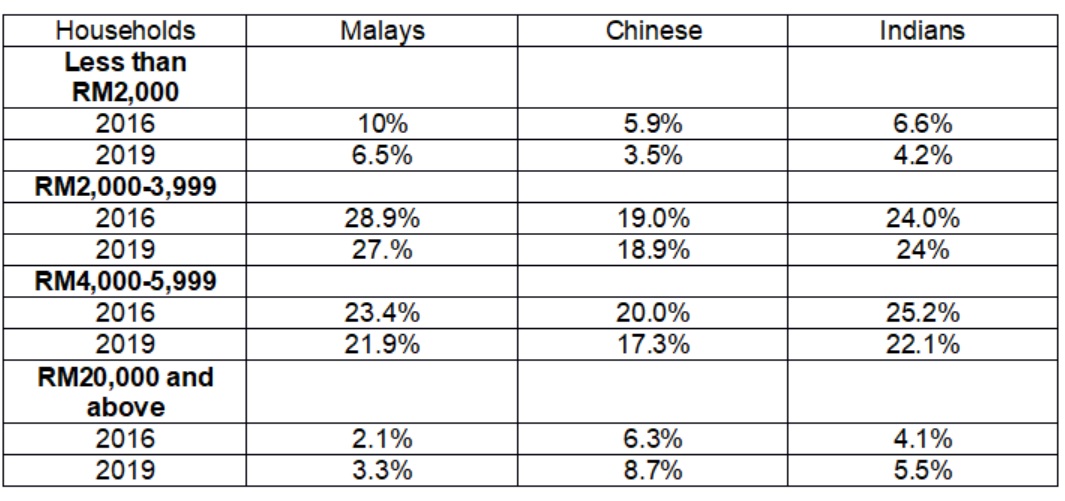
There is a need to adopt a new approach, also due to the failure of NEP’s second prong. To address inter-ethnic economic balance, the government imposed Bumiputera quotas in business, education and other economic activities. This resulted in rent-seeking and political patronage, which led to pervasive corruption.
A substantial portion of the RM1.1 trillion total government revenue for 20 years was awarded to Bumiputera contractors. However, the contribution of Bumiputera SMEs to GDP remains less than 9%. If the total government revenue for the past 50 years from 1971 is calculated, the 9% is certainly too small a return compared to the costs of the NEP. The cost must also include the misery, suffering and sacrifice of non-Malays with talents and capabilities, who lost their opportunities for better lives through no fault of their own, other than being born into a family of a different race.
With only 2.1% of the Top 20 being Malays, the question is, who acquired all the wealth when more than RM1.1 trillion was spent on the Bumiputera Agenda? The implementation of the agenda has been unachievable because of kleptocracy, nepotism, cronyism and corrupt practices.
The proposal in this Budget to implement the Shared Prosperity Vision 2030, which is a continuation of the race-based preferential policy, will only lead to the same disastrous results.
Rebuilding for the better
This is the time to prioritise a more inclusive and multiracial socio-economic development strategy, and target all ethnic communities equitably and fairly in the overall programmes and projects implemented. For the economy to recover, the whole community must come together and bridge their differences for a common cause. There is no alternative other than to rebuild Malaysia as a shared society.
A shared society is one where everyone has a sense of belonging, being respected and bound to that a sense of responsibility and willingness to act for the good of society as a whole and for every individual. The dignity of everyone is respected, and human rights upheld. There is equal opportunity for everyone and diversity is valued.
A shared society generates economic dividends by harnessing the skills, strengths and talents of the entire population. Where people hold an equal capacity to participate in and benefit from economic, political and social opportunities, regardless of race, ethnicity, religion, language and other attributes, relations between groups are peaceful and inherently desirable.
Business enterprises in shared societies can draw on a stable, more diverse and productive population, and access the skills and creativity offered by all individuals. Entrepreneurship, creativity and innovation flourish in a peaceful, tolerant and stable environment.
Solidarity, inclusiveness and equity are the right things to do, and they also make good economic sense. Left unaddressed, the exclusion of disadvantaged groups can be costly. At the individual level, the most commonly measured impacts include the loss of wages, lifetime earnings, poor education and employment outcomes. Racism and discrimination also have physical and mental health costs. At the national level, the economic cost of social exclusion is captured by foregone GDP and human capital.
Conclusion
For the reasons stated, unless substantial amendments are made as suggested, I do not support Budget 2021.
William Leong is Selayang MP







